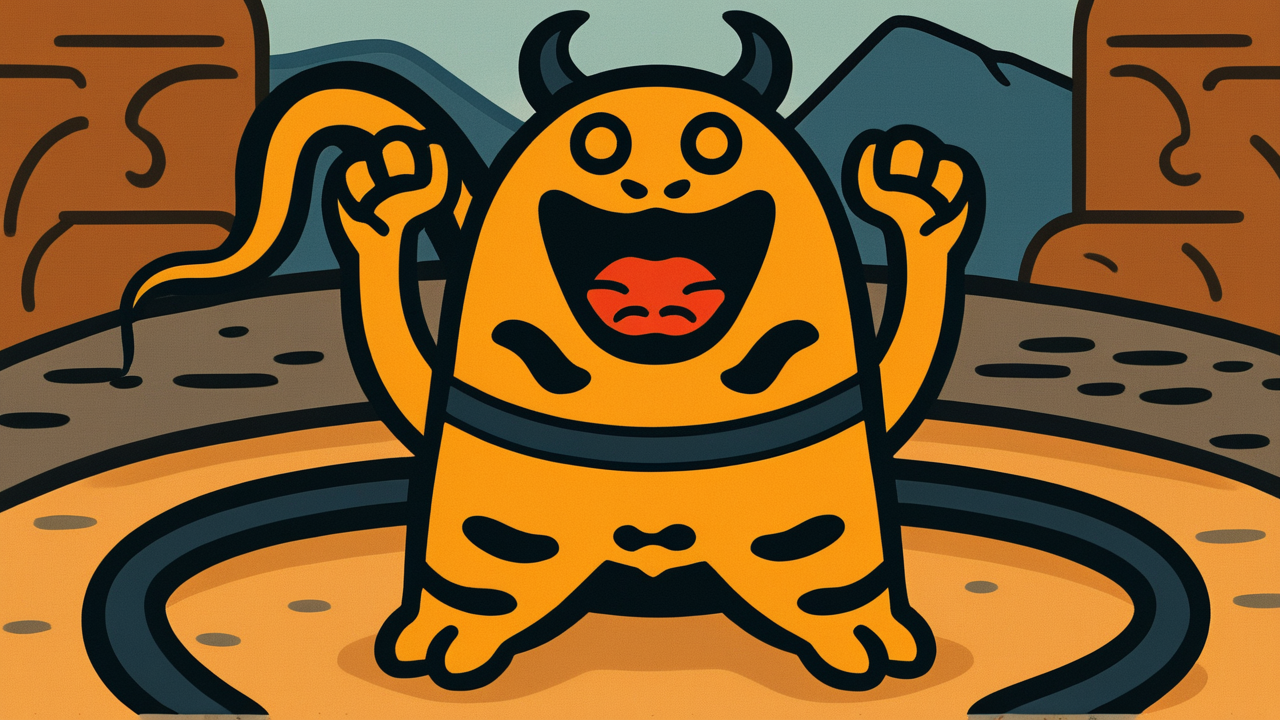How to Read “鬼が出るか蛇が出るか”
Oni ga deru ka ja ga deru ka
Meaning of “鬼が出るか蛇が出るか”
“Demon comes out or snake comes out” is a proverb that expresses the anxious feeling of being unable to predict the outcome in a situation where either result would be troublesome.
This proverb is premised on the idea that while there are two choices or possibilities, both lead to undesirable results. Whether a demon or a snake appears, both are terrifying beings for humans and ones we would not want to encounter. In other words, this expression is not comparing a good result with a bad result, but rather comparing a bad result with another bad result, a troublesome situation with another troublesome situation.
It is used in situations such as waiting for exam results, watching the progress of important negotiations, or waiting for medical diagnosis results – circumstances where the outcome is uncertain and any result is likely to be harsh. Even today, it’s commonly used in tense situations like job hunting or before personnel change announcements.
Origin and Etymology
Regarding the origin of “Demon comes out or snake comes out,” several theories exist, but the most credible is that it arose from symbols of fear that Japanese people have harbored since ancient times.
Both demons and snakes have long been depicted in Japanese folk beliefs and tales as threatening beings to humans. Demons were portrayed as inhabitants of the demon realm influenced by Buddhism, while snakes represented fearsome natural incarnations in ancient Shinto, each expressing different types of terror.
The background of this proverb’s creation is thought to lie in Edo period commoner culture. People of that time likely referenced the most familiar and frightening beings – demons and snakes – to express their anxiety when facing unknown situations. While both are beings one would not want to encounter, their natures are completely different. Demons symbolized powerful and direct threats, while snakes represented quiet and unpredictable dangers.
What’s interesting is that this expression developed not merely as an expression of fear, but as a rhetorical technique emphasizing the seriousness of situations where “either outcome would be troublesome.” It was an exquisite metaphorical expression born from the wisdom of the common people.
Usage Examples
- Tomorrow’s personnel announcement – it’s “demon comes out or snake comes out,” and I can’t sleep at night
- Watching stock price trends feels like “demon comes out or snake comes out,” giving me a stomachache
Modern Interpretation
In modern society, the expression “demon comes out or snake comes out” has evolved as a word expressing more complex and diverse anxieties. In our information society, we are constantly forced to make choices, and the results are immediately visualized. Reactions to social media posts, online rating systems, real-time stock price fluctuations – because results are known immediately, anxiety has also increased.
Particularly interesting is that in modern times, there has been a slight shift from the original meaning of “both results are bad” to being used to mean “anxiety about unpredictable situations.” For example, it’s increasingly used in situations where the results are unreadable, such as introducing new technology or work style reforms, regardless of whether the change itself is good or bad.
Moreover, due to globalization, we live in an era where the results of our choices are influenced on a global scale. With increasing factors beyond individual control – currency fluctuations, international situations, pandemics – the “anxiety about not knowing what will happen” expressed by this proverb has become more familiar and pressing.
For modern people, this proverb may be beginning to take on new meaning as a word expressing not just anxiety about binary choices, but fear of unpredictability caused by complexly intertwined factors.
When AI Hears This
This combination is so exquisite because it captures two extremes of Japanese fear psychology. The oni represents overwhelming visible power—a clear threat that attacks head-on. Meanwhile, the snake symbolizes lurking danger hidden in the grass, a potential threat that could strike with venomous fangs at any moment.
From a psychological perspective, human fear comes in two types: “acute fear” and “chronic anxiety.” The oni exemplifies acute fear—a clear crisis that demands full attention and immediate response the moment it appears. In contrast, the snake represents chronic anxiety, a fear that gradually gnaws at the mind precisely because you never know when it might emerge.
What’s fascinating is how oni are portrayed in Japanese yokai culture. While certainly terrifying, oni are depicted as “easily identifiable enemies” with horns, red skin, and iron clubs. In other words, they’re opponents you can strategize against. Snakes, however, have long been feared as “the unseen ones”—the uncertainty of not knowing where they might be lurking in the grass was the very essence of the terror they inspired.
When this proverb describes a situation where “you don’t know which will emerge,” it actually reflects the deep layers of Japanese crisis management consciousness. It brilliantly articulates the psychological state of simultaneously harboring two completely different types of anxiety: difficulties that are clear and formidable but manageable, versus threats that are small yet unpredictable and persistent.
Lessons for Today
What “demon comes out or snake comes out” teaches modern people is how to face uncertainty. We tend to seek perfect predictions and certain results, but life inevitably has moments of “not knowing.” This proverb teaches us the importance of acknowledging and accepting those anxious feelings during such times.
What’s important is not being ashamed of feeling anxious. Being nervous in important situations is proof that you’re seriously considering the results. Your anxiety is evidence that you’re trying to grow.
This proverb also suggests the importance of “not bearing it alone.” By sharing the feeling of “demon comes out or snake comes out” with someone, anxiety is halved and joy is doubled. Regardless of the results, the richness of life lies in being able to share that process with important people.
This proverb quietly cheers on your courage as you continue walking toward an uncertain future.



Comments